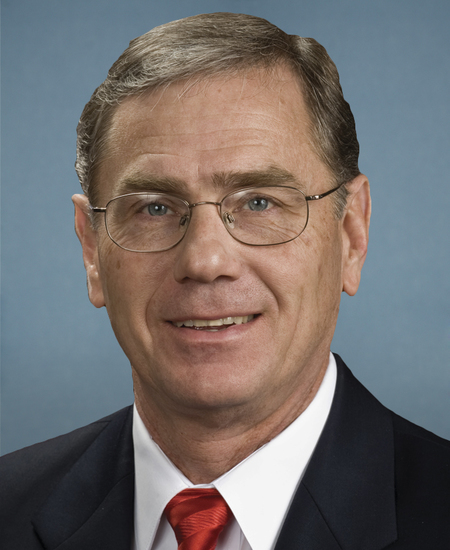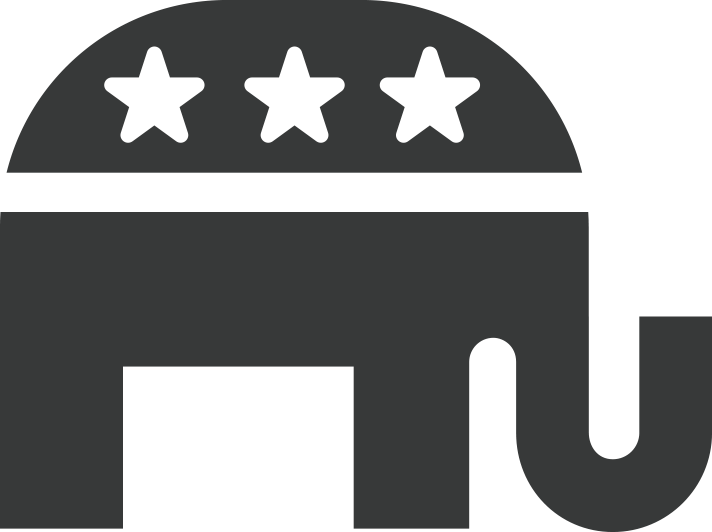Rep. Blaine Luetkemeyer

Rep. Blaine Luetkemeyer
Missouri
District 3
Republican

10%
2023 Score
6%
Average House Republican
11%
Lifetime Score
| Date | Key Vote | Vote |
|---|---|---|
Sep
30
2023
|
Continuing Appropriations Act, 2024 and Other Extensions Act This short-term continuing resolution averted a government shutdown by funding operations until Nov. 17, 2023. It addressed the Republican blockade of bipartisan appropriations bills, extended the Federal Aviation Administration’s authorization and safeguarded pay for federal firefighters. The resolution also extended critical health care programs, preventing hardships for workers, military personnel, air traffic controllers, and beneficiaries of the food assistance programs known as SNAP and WIC. |
|
Jun
21
2023
|
CHOICE Arrangement Act This bill would loosen regulation of association health plans, allowing employers to establish plans that fail to provide essential health benefits. It would also allow employers to offer health plans that are not backed by adequate reserves. |
|
Jun
15
2023
|
Separation of Powers Restoration Act of 2023 This bill would undermine the principle of separation of powers, a fundamental element of our government, by upsetting long-standing principles of judicial review of agency interpretation of laws and regulations. It would prevent courts from deferring to agencies’ expert interpretations of ambiguous laws. Instead, it would mandate that courts substitute their own judgment, shifting power to unelected judges and undermining agency expertise. This change could jeopardize public health, safety and financial security. |
|
Jun
14
2023
|
Regulations from the Executive in Need of Scrutiny Act of 2023 (REINS Act) The REINS Act is an extreme measure jeopardizing federal agencies’ ability to issue important rules that protect workers and the public overall. The bill would mandate congressional approval for all major rules within 70 legislative days, allowing politics, not scientific judgment, to dictate regulatory actions. This legislation is harmful and unnecessary; Congress already has mechanisms to disapprove or block rule implementation without the need for additional, burdensome requirements. |
|
May
24
2023
|
Congressional Review Act resolution to block the Department of Education rule relating to “Waivers and Modifications of Federal Student Loans” This resolution aimed at overturning President Biden’s student debt relief program would have denied relief from a broken student loan system to 43 million individuals. Ninety percent of the beneficiaries of Biden’s program earn less than $75,000 a year. |
|
May
11
2023
|
Secure the Border Act of 2023 Rather than uphold humanitarian principles and protect the rights of all workers regardless of immigration status, this punitive immigration bill focuses on deterrence, detention and removal. It would restrict asylum, reduce protections for children, limit relief options, erode due process, allocate funds for a border wall, cut humanitarian program funding, and support detention and deportation. |
|
May
11
2023
|
Protecting Taxpayers and Victims of Unemployment Fraud Act Rather than targeting intentional fraud, as the Department of Labor Office of Inspector General recommended, this bill would penalize unemployment insurance (UI) recipients for inadvertent errors in program administration. It would suspend the requirement that merit-based public employees administer the UI program for seven years, undermining program stability and expertise. |
|
Apr
26
2023
|
Limit, Save, Grow Act of 2023 This bill would slash domestic spending by $144 billion, cutting vital programs by up to 22%. The cuts would jeopardize Medicaid coverage for 10 million low-income Americans, eliminate food assistance for millions of families and cancel debt relief for 40 million student borrowers. The plan also would jeopardize funds for veterans’ medical care, clean energy projects, COVID-19 vaccines and public transit subsidies. |
|
Feb
28
2023
|
Congressional Review Act resolution to block the Department of Labor rule relating to “Prudence and Loyalty in Selecting Plan Investments..." This resolution would have overturned a Department of Labor (DOL) rule that permits private sector retirement plan trustees to consider environmental, social and governance (ESG) factors when selecting retirement investments. The DOL rule is consistent with trustees’ fiduciary duties because prudent investment requires the consideration of all relevant information which includes ESG factors. |
|
Jan
31
2023
|
Pandemic is Over Act House Republicans were determined to stop the federal government’s response to COVID-19, despite thousands of lives still being lost every week and ongoing strain on health care workers. The bill would curtail important aspects of the government’s response, eliminating access to testing and treatment, and causing millions of Americans to abruptly lose Medicaid coverage. |
|

